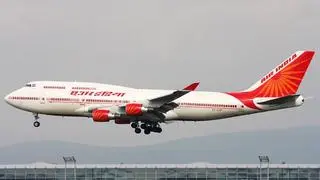Budget airline IndiGo’s announcement last month that it was introducing quiet zones in its flights where children under 12 would not be permitted set off a furore. It was widely covered in the press and much discussed in social media across the world. “Family/child-unfriendly”, said some. High time airlines did this, said others, appreciating this ‘bold decision’. While it must have been an uncomfortable exercise in customer/public relations for the airline, Indigo is not the pioneer that introduced this facility. These seats come at a premium to economy seats.
Other airlines including Air Asia, Scoot and Malaysia Airlines introduced this facility a few years ago. Air Asia and Scoot both say they have faced no negativity on this count. Fairuz Majid, Head of Communications, AirAsia X Berhad, says his airline’s quiet zone was launched in February 2013. The first seven economy class rows (row 7-14), immediately after the Premium cabin are reserved for this zone, exclusively for travellers older than 12 years. To enhance the ambience, there’s soft lighting.
Majid says “no extra charge will be imposed for this option except for the standard pick-a-seat fee”. The Quiet Zone is an added value to long-haul and low-fare services on the A330-300 fleet.
Scoot’s silent zones are called ScootinSilence and cost anywhere between SG$12 and SG$20 while booking, depending on whether the flight is medium or long haul. The seats have adjustable head rests and are Standard, Stretch and Super seats (where available). Onboard upgrade starts at SG$ 20-40.
Scoot’s country head Bharath Mahadevan says the facility has been part of all routes since 2012. He says it has been “very, very successful”. Generally, corporate travellers and young couples travelling without children book these seats, he says. The Singapore-based Scoot has bigger aircraft (Boeing 787 Dreamliners) and the partitions between cabins help.
Brand strategy expert Harish Bijoor, CEO of Harish Bijoor Consults Inc, believes Indigo handled the issue wrong. What next, women-free or men-free zones, he wonders. “This child-free zone was a facility that did well in the old politically incorrect days. Today, life is different. Doing a mobile-free zone is fine, but segregation among human beings is wrong. Discriminatory, even elitist. When the whole world is talking inclusion, airlines need to talk inclusion more and exclusion less.” Airlines can get away with division using money as currency, but basing it on gender and age and size of human being? “Indigo needs to be careful on this count and withdraw totally,” he says, adding that “children are a part of us, and we are a part of our children.”
Indigo’s publicists did not respond to a request for an interview for this report.
How effective are these silent zones, really? There are few sounds that are more powerful and carry farther than that of a child crying so would setting a few seats apart really help? Scoot’s Mahadevan admits it cannot be helped if there’s a child crying in a back cabin. So should airlines look at sound-proofing next for their quiet zones to be really quiet?







Comments
Comments have to be in English, and in full sentences. They cannot be abusive or personal. Please abide by our community guidelines for posting your comments.
We have migrated to a new commenting platform. If you are already a registered user of TheHindu Businessline and logged in, you may continue to engage with our articles. If you do not have an account please register and login to post comments. Users can access their older comments by logging into their accounts on Vuukle.